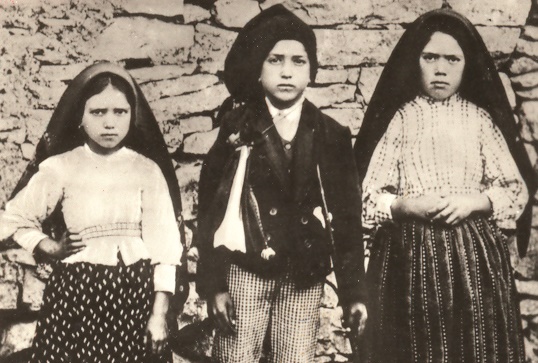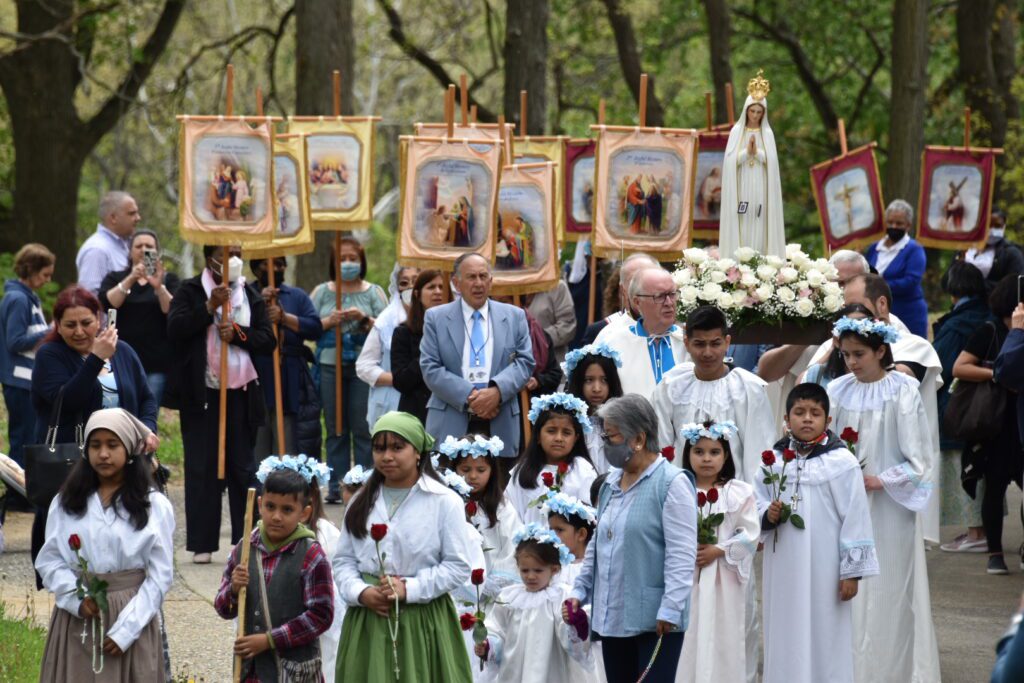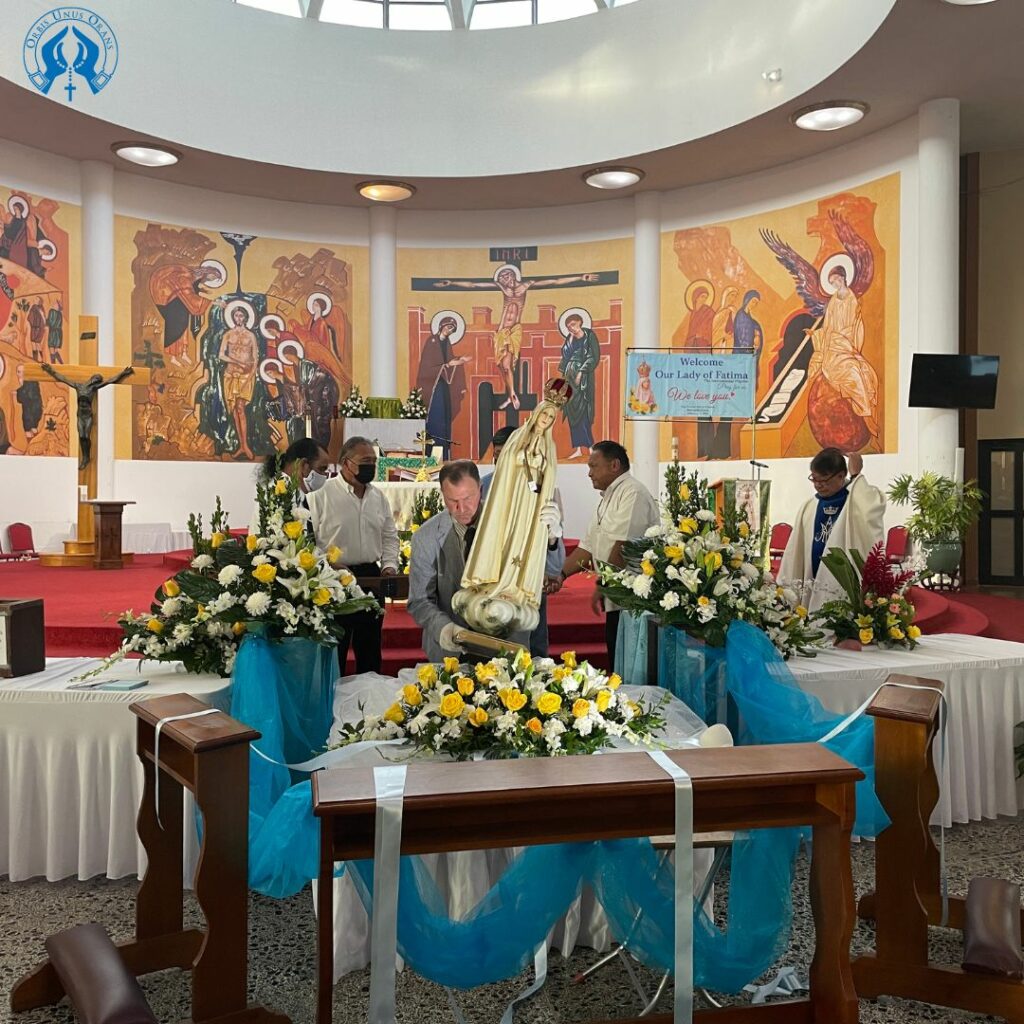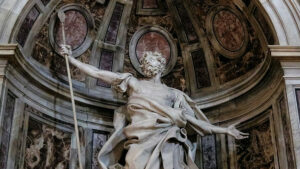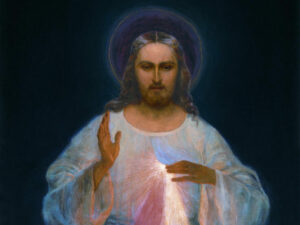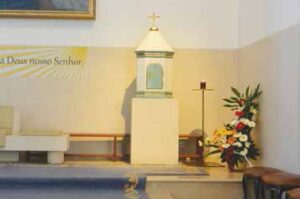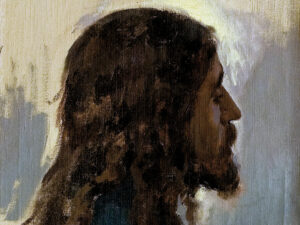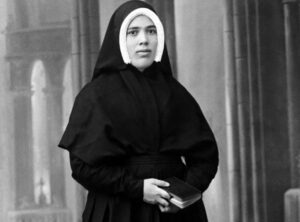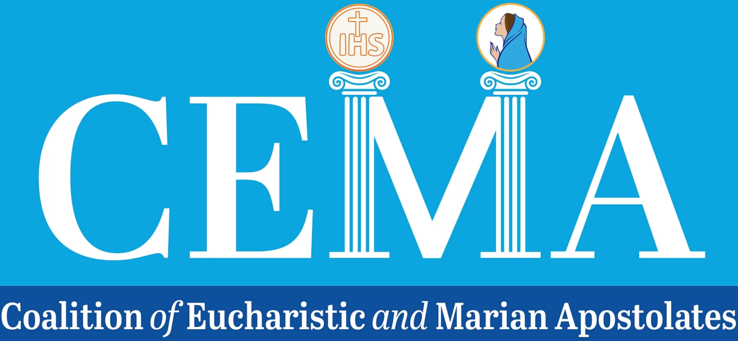by Donal Anthony Foley –
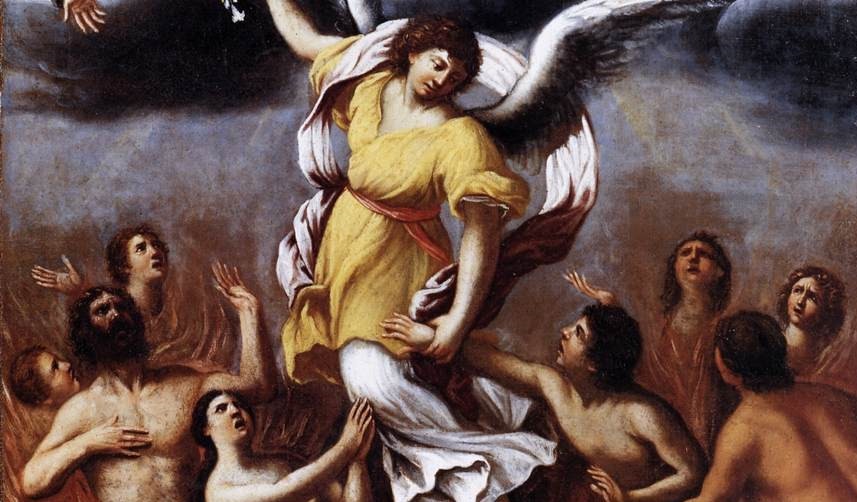
St. Faustina revealed in her Diary that she was taken to Purgatory by her guardian angel, which she described as a misty place full of fire in which there was a great crowd of suffering souls. These were praying fervently for themselves, but to no avail, because only we can come to their aid. The flames that were burning them did not touch her at all. She asked these souls what was their greatest suffering, to which they replied in one voice, “longing for God.”
We can help them, especially this month. November is traditionally dedicated to the Holy Souls, who, according to Church teaching, are detained in Purgatory where they are being cleansed of the effects of their sins, before they can enter the presence of God. They are called “holy” because they have passed beyond the portals of this life, so they cannot commit any further sins, and their salvation is assured.
The classic New Testament passage alluding to Purgatory is found in Chapter 5 of Matthew’s Gospel, where Christ speaks of not getting out of prison until the last penny has been paid (vs 25-26). This passage indicates that it is necessary to be absolutely pure and sinless before one can see God.
St. Paul’s first letter to the Corinthians also alludes to Purgatory, when he speaks of a man’s work being burned up, but he himself being saved, but only as through fire. (1 Cor 3:14-15). This passage gives us a picture of the sufferings of Purgatory, which have been traditionally understood in terms of fire.
The Catechism (1030-31) has this to say about Purgatory: “All who die in God’s grace and friendship, but still imperfectly purified, are indeed assured of their eternal salvation; but after death they undergo purification, so as to achieve the holiness necessary to enter the joy of heaven. The Church gives the name Purgatory to this final purification of the elect, which is entirely different from the punishment of the damned.”
So the Church is quite clear about the existence of Purgatory, and November has long been regarded as an important time to remember our deceased loved ones, and all the Holy Souls.
This doesn’t mean, however, that we ignore them during the rest of the year. We can pray for them, or visit a cemetery and pray for particular souls, any time. We can also gain a partial indulgence on their behalf, using, for example, the following well-known prayer: “Eternal rest grant to them, O Lord, and let perpetual light shine upon them. May the souls of the faithful departed, through the mercy of God, rest in peace. Amen.”
We can also pray for them to St. Nicholas of Tolentino, the patron saint of the Holy Souls. And likewise, we can pray the Rosary or do the Stations of the Cross for the Holy Souls. But as the Catechism tells us (1032), the best thing is to have Masses offered for them, that they may be speedily released from their sufferings.
We also need to do our best to avoid Purgatory ourselves, or at least shorten our time there, through the means offered us by the Church. These include wearing the Brown Scapular and taking advantage of the Sabbatine privilege, which is associated with it.
The basic Scapular promise is that the wearer “will not suffer eternal fire,” through the intercession of Our Lady, who will ensure that the person obtains the grace of final perseverance and dies in a state of grace. The Sabbatine privilege is based on a 14th century papal bull, which implied that those who wore the Scapular and observed chastity according to their state in life, while also reciting the Little Office of Our Lady, would be freed from Purgatory on the first Saturday after their death. The word “Sabbatine” comes from the Sabbath, that is, Saturday.
Today, the Church defines it in a more limited sense, that those who fulfill the conditions of the Sabbatine privilege can expect to be freed from Purgatory soon after death, and particularly on a Saturday.
In more recent times, the practice of saying five decades of the Rosary every day has replaced the condition of reciting the Little Office of Our Lady. This fits with Our Lady’s request at Fatima to pray the Rosary daily in reparation for sin, and especially for peace in the world.
Purgatory was also mentioned by Our Lady at Fatima, during her first apparition, when Lucia asked about a young woman named Amelia, who had recently died. Our Lady responded that Amelia would be in Purgatory “until the end of world.” The Blessed Virgin affirmed the Catholic belief in Purgatory in terms that were quite sobering, if not startling.
Despite this reality, St. Catherine of Genoa reminds us of the hope for these souls in her Treatise on Purgatory: “I believe no happiness can be found worthy to be compared with that of a soul in Purgatory except that of the saints in Paradise; and day by day, this happiness grows as God flows into these souls, more and more as the hindrance to His entrance is consumed. Sin’s rust is the hindrance, and the fire burns the rust away so that more and more the soul opens itself up to the divine inflowing.”
So while Purgatory is a painful experience, it is one in which the soul will gradually be purified and become increasingly happy as it gets spiritually closer to God.
One thing is certain, God does not want us to go to Purgatory, or worse, hell, and has provided abundant means to avoid this fate and swiftly enter heaven. The Five First Saturdays devotion and the Divine Mercy devotion were given to us during the 20th century, and while the former is a promise of salvation, the latter provides a way by which each year, just after Easter, all our sins can be forgiven and the punishment due to them remitted.
Purgatory is certainly something that should be taken seriously, but if we do our best to remain in a state of grace through prayer and the sacraments, particularly Holy Communion and confession, and live a moral life, while taking advantage of the various devotions available, we can be part of the wonderful vision of Heaven that St. John the Evangelist beheld:
“A great multitude which no man could number, from every nation, from all tribes and peoples and tongues, standing before the throne and before the Lamb, clothed in white robes, with palm branches in their hands, and crying out with a loud voice, ‘Salvation belongs to our God who sits upon the throne, and to the Lamb!’” (Rev 7:9-10)
Donal Anthony Foley is the author of a number of books on Marian Apparitions, and maintains a related web site at www.theotokos.org.uk. He has also written two time-travel/adventure books for young people, and the third in the series is due to be published shortly.


